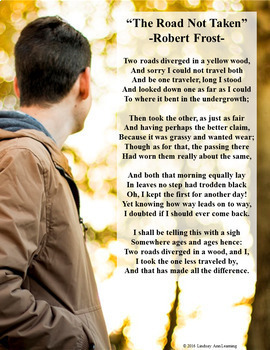
(Post-production note: contemporary American poet Ben Lerner's The Hatred of Poetry makes for a timely addition to the essay's bibliographic suggestions and also may impart something like a critical mass to the essay's approach to teaching in the rift between poetic ontology and historical poetics. I discuss Virginia Jackson's influential and compelling anti-lyric anti-theory-Jackson's version of the resistance to theory-as it presents a teachable conflict with the Romantic "literary absolute." The essay ends by reconsidering the metonymic linkage between the position of Romanticism and the position of poetry/ literature/ the Humanities in the institution of the contemporary university, and with brief suggestions for lesson plan ideas and student readings. It moves from a narrative introduction on Robert Frost's very material practice of "lyric overhearing" on his Derry, New Hampshire party-phone line, to extended consideration of the recent scholarly turn to historical poetics in the study of nineteenth century British and American Poetry. It demonstrates the use and interest of teaching the debated concept of lyric ontology in the Romantic Poetry classroom across undergraduate and graduate levels. This essay appeared in the collection Teaching Romanticism and Critical Theory, edited by Brian McGrath (a Romantic Circles Pedagogies Commons Special Issue, Dec. At the end of the same stanza the speaker recalls his grief "as the hope-hour stroked its sum," and in the second stanza he refers to himself, wistfully, as "a time-torn man." Time and the woman are against him, no less than Nature and the woman in "Neutral Tones." The luxuriant self-pity of these lines, their dignified indignation at the woman’s lack of “pure lovingkindness,” anticipates the mature work of Yeats. "You did not come," the poem begins, "And marching Time drew on, and wore me numb…" Set in grammatical parallel, the inaction of "you" and the action of "Time" conspire to disappoint. In "A Broken Appointment," which finds Hardy’s speaker quarreling with a woman over an unrequited love, it’s Time in particular that allies with the Other. my mom Deborah Cummins who, by her example and through our education, taught us to take the road less traveled. His poems tend to know where they stand, and argue with each other more than with themselves: that is the source of their limitations but also of their pugnacious greatness. As members of the helping professions consider families as potentially responsive to social change as well as innovative, they can come to see the many assets and strengths families bring to daily life.Abstract That is, he rarely brings such markedly clashing attitudes into close conjunction. This responsiveness can make them innovative social structures within a society as they find solutions to the issues they face within households, neighborhoods, and greater communities. A Road Not Taken.pdf - A Road Not Taken Thomas Storck 9 June, 2021 O n Sunday The New York Times published a short article entitled 'Vatican A Road Not Taken. Sensitive to cultural, social, economic, and ecological forces occurring locally, at national and even global levels, increasingly families must be responsive to social change. No longer confined to the traditional family, if indeed this form ever really existed in the first place, the family is undergoing considerable diversification perhaps taking different forms across the life course. The helping professions, inclusive of those professions and disciplines that seek to assist people struggling with social issues, or who are experiencing issues emerging from social change, are bro adening their concept of family. At the same time, challenges around this approach demonstrate the need for continued research. In addition, use of concept mapping to drive community building generated reflection on intended and unintended benefits. Primarily, this study was able to generate a conceptual framework of problems facing African American male youth, which was used to revise previously defined outcomes and also create new ones. the road not taken.pdf - The Road Not Taken The Road. The article describes the first phase of the African American Initiative at Roseland, and lessons learned. the road not taken.pdf - The Road Not Taken The Road Not Taken Notes 14 THE ROAD NOT TAKEN You must have had to make choices sometimes. This work grew out of a grant related to the needs of African American families, called the African American Initiative, which was funded by the United Way of Metropolitan Chicago.

This article presents how a planning and evaluation method known as concept mapping was used to drive a community building effort by a large not-for-profit organization in Chicago around the issue of at-risk African American male youth. NCERT Solutions for Class 9 English Poem Chapter 1 The Road Not Taken. While many organizations recognize the value of community building, they often encounter difficulty in actualizing projects and developing tangible results.


 0 kommentar(er)
0 kommentar(er)
